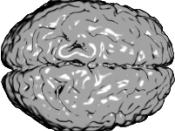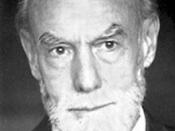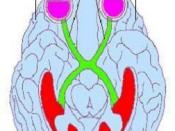Is there any validity to the popular notion of a left-brained versus a right-brained person? The sterotypical left-brained person is logical and linear in his/her thinking, while the right-brained person is creative, holistic, , and able to see connections between things. Regardless of whether people with these stereotyped personalities really exist, and really are left-brain-dominant or right-brain-dominant, what does neuropsychology tell us about the functions of the left versus the right hemisphere? Does this evidence have anything to do with these stereotypes? What happens to an adult's personality after a left versus a right hemisphere lesion?
INTRODUCTION 100 WORDS
Part one 500 words
4 claims 120 words each
Psychology Right Brain, Left Brain. The article in which I chose to examine is called Right Brain, Left Brain: Fact and Fiction, written by Jerre Levy. In the past fifteen years or so there has been a lot of talk of left brain and right brain people.
Levy's reason for righting this article was clearly to stop the misconceptions and show the truth about how our brain hemispheres operate. Levy first explores the myth of the left brain and right brain theory. She states that generally people see the left hemisphere of the brain controlling logic and language and the right, creativity and intuition. In addition people differ in their styles of thought, depending on which half of the brain is dominant. She believes that most of what these notions state is farce. Next the article explores the history of this fascination of the left and right hemispheres of the brain. Apparently the study of this aspect of the brain traces back to time of Hippocrates. Levy weaves in and out of the various theories and prominent people known for contributing to the confusion. It wasn't until 1962 when Roger W.


